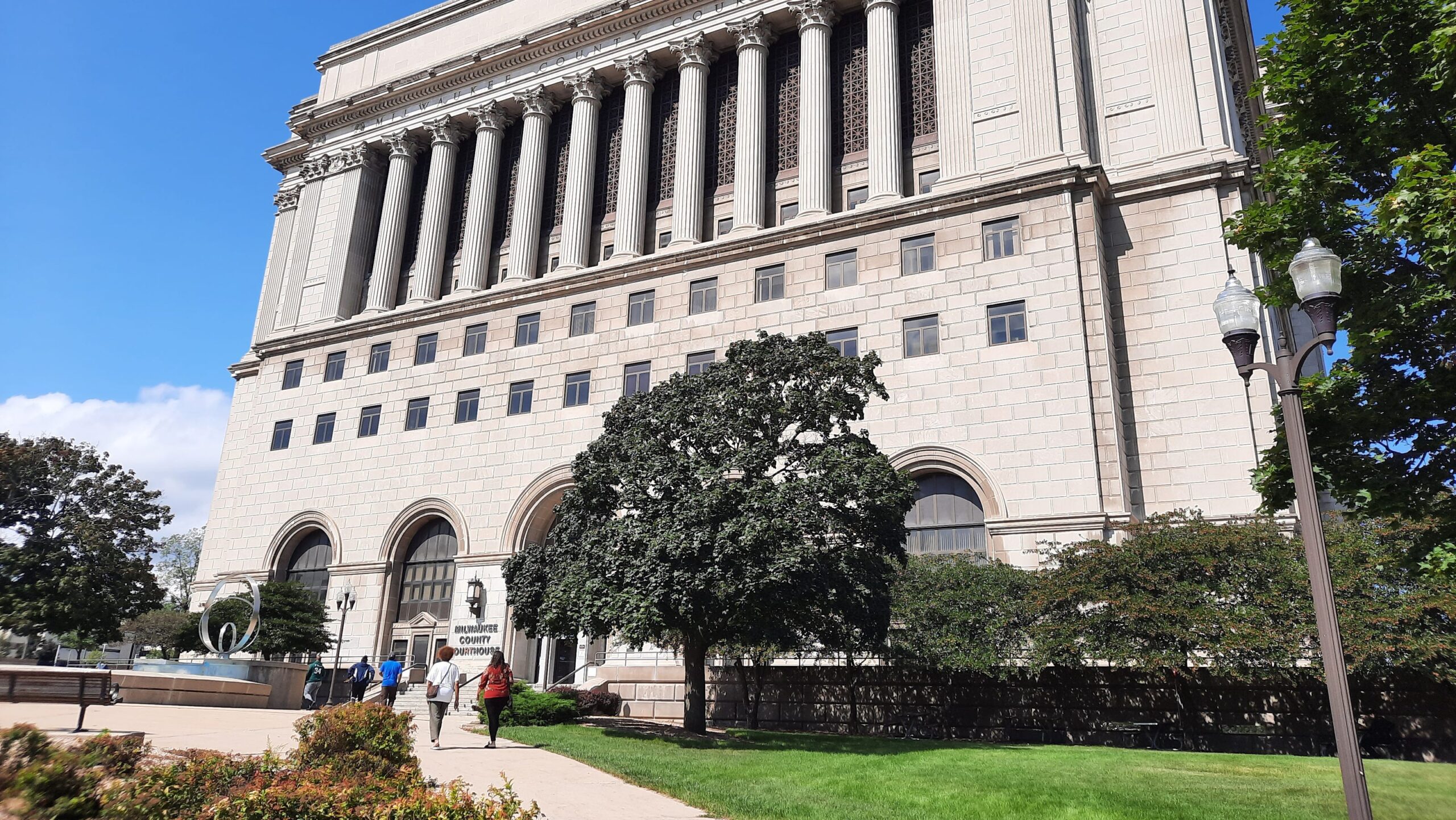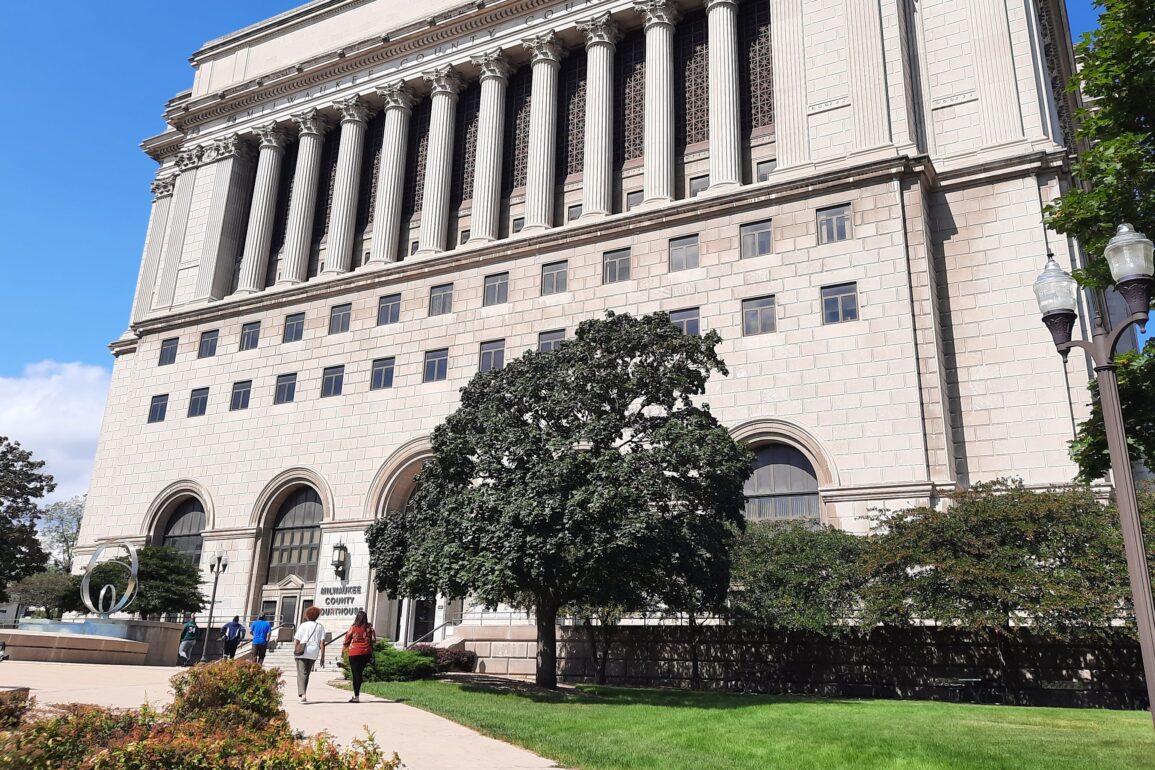
José Pérez, the president of the Milwaukee Common Council, said Thursday he would begin work to find solutions after an August report outlined immense issues in the local criminal justice system as a result of the COVID-19 pandemic.
He didn’t say what those solutions could be, though. And when other public safety officials were pressed on the subject earlier this week, few had concrete answers.
The issues within the justice system cross a large a swath of governmental agencies, including police, the sheriff’s office, multiple court systems and the district attorney’s office. At a Thursday meeting with the city’s Public Safety and Health Committee, Ald. Michael Murphy suggested none of them were leading a coordinated effort in response.
“This report is going to be like a lot of reports,” he said. “It gathers dust … and then it’s buried. For the safety of our citizens going forward, it’s important to figure out a better path.”
In response, Pérez said, “We’ll figure out how we can get something done.”
The report, authored by the Wisconsin Policy Forum, found that police across the county have made fewer arrests since the pandemic while reports of serious crimes increased. The court system slowed to a halt during lockdown orders and has not recovered from an intimidating backlog.
The Milwaukee County Jail is at capacity, meaning more suspects stay in police holding cells, which forces officers to spend large amounts of time transferring them to hospitals when they need medical attention, rather than policing the streets. Staffing shortages in police departments and the Milwaukee County District Attorney’s Office have slowed enforcement of the law.
The report also urged officials to find solutions to the vast problems.
Thursday’s discussion at Milwaukee City Hall came two days after multiple officials within the local criminal justice system also discussed the report at an event hosted by the Marquette Law School.
Here’s a summary of what officials had to say about reversing the conditions outlined in the report:
Michael Murphy, Milwaukee alderman
Murphy made several statements Thursday that emphasized conditions in Milwaukee County’s criminal justice system were “scary” and weren’t sustainable.
Since the pandemic, he said, homicides and shootings have reached record levels — an issue that disproportionately affects Black communities — and offenders aren’t being held to account.
Murphy said nobody has emerged as a point person to coordinate a response from all agencies involved. He said Mayor Cavalier Johnson should step in for that.
“I hope the message gets through to the (mayor’s office), and I know President Pérez is going to follow up on it,” he said. “The administration has got to take its own lead on this.”
In response, Jeff Fleming, the spokesperson for the mayor’s office, acknowledged Johnson hasn’t enacted initiatives specifically in reaction to the report. But he said Johnson has a demonstrated commitment to community violence prevention efforts, funding additional police officers and supporting programs that combat opioid addiction and provide better employment and housing opportunities.
Carl Ashley, chief judge in Milwaukee County
Ashley emphasized the need for the court system to function more efficiently. He didn’t provide specifics, but said one angle he’s exploring is how to divert more people with mental health issues away from the criminal justice system.
“They should be funneled outside of that and maybe this is an opportunity to take a look at that,” he said. “We are not going to prison our way out of our public safety issues.”
Ashley also partially attributed the court backlog to vast staffing issues in the courthouse. He didn’t provide specific numbers but said he believed they were making headway in hiring new clerks, judges, assistant district attorneys, public defenders and court reporters.
“They’re getting up to speed,” he said.
Jeffrey Norman, Milwaukee police chief
At the Marquette Law School event, Norman was asked by the moderator what his department needed the most in light of the justice system’s challenges. Norman repeated something he’s said before: improved trust with the community.
He said the Police Department is still “trying to get past some of the old hurts” of past administrations. Those trust issues, he has said before, affects the community’s faith in the justice system and officers’ ability to enforce the law.
“Policing is a community effort. It’s not just us,” he said. “That is something that where, when we have the ability to have that trust, where our community, residents support us in our efforts … all the other things fall in line.”
John Chisholm, Milwaukee County district attorney
Chisholm emphasized that his office and much of the justice system has been “under-resourced” since the pandemic hit. At that same time, proactive and preventative initiatives meant to discourage crime mostly evaporated.
He said Milwaukee and the nation requires a more robust system to address public safety issues from a public health approach. But he wasn’t confident society was heading in that direction.
“I don’t see us doing that right now,” he said. “That’s not the lesson we seem to have taken from this. We seem to just want to get back to pouring people back into the funnel again, as if that’s going to solve the problem.”
Chris Ramirez of the Journal Sentinel staff contributed to this report.
Contact Elliot Hughes at elliot.hughes@jrn.com or 414-704-8958. Follow him on Twitter @elliothughes12.
This post was originally published on this site be sure to check out more of their content.







